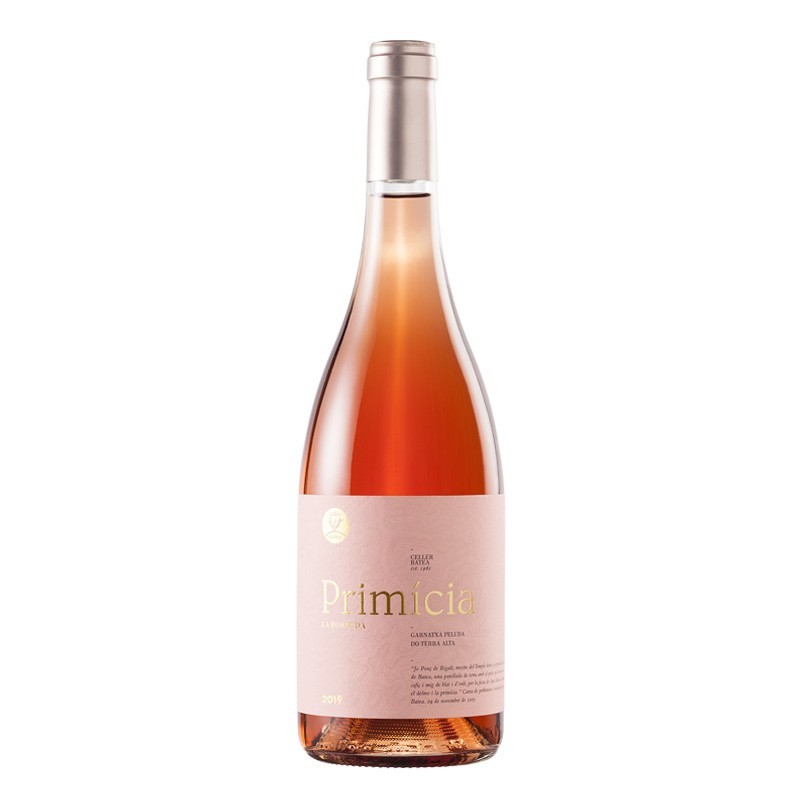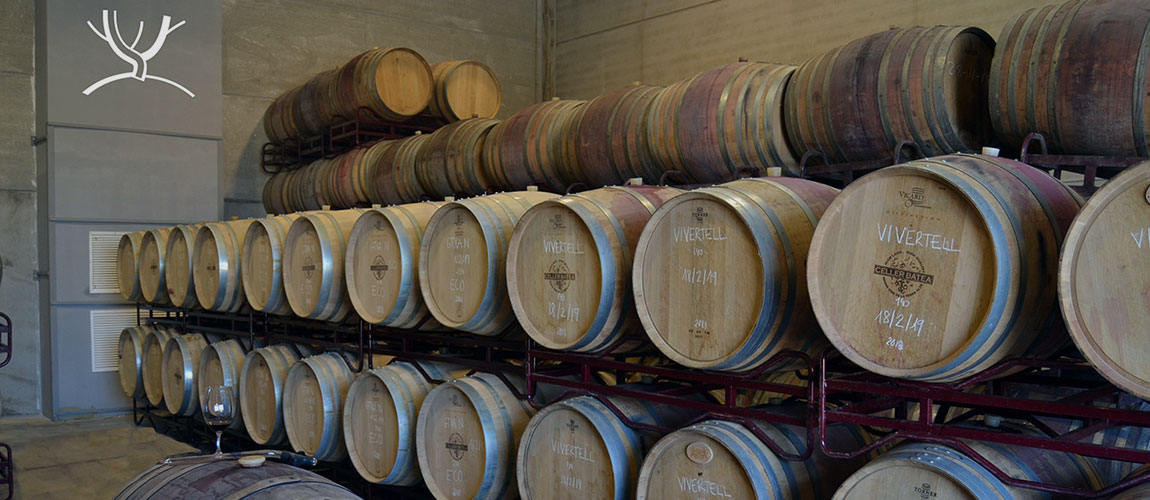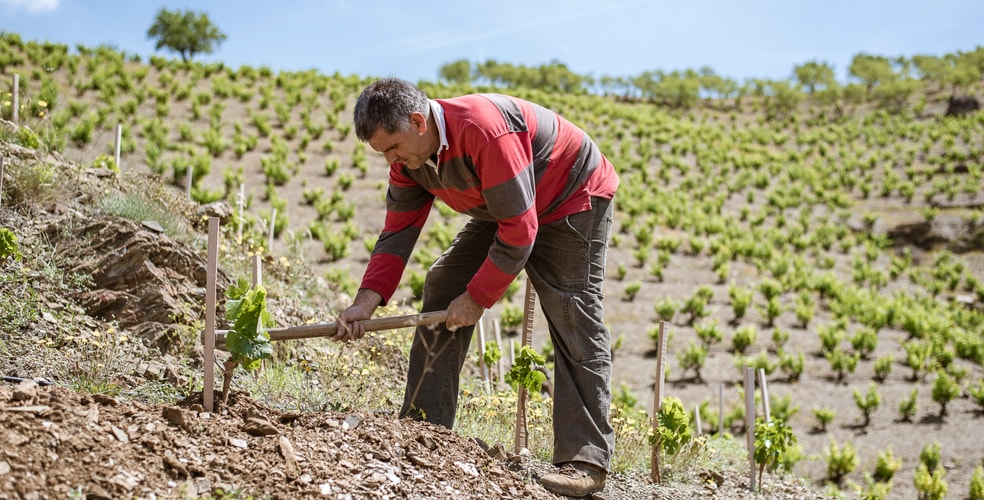



Primicia is the brand that is firmly set in the winery's recent history, as it gave its name to our first bottled wine. A discovery of bottled Garnachas that soon made a name for itself on the market. In this case, a Garnacha Peluda that delivers new flavours and new pairings in a simply stunning rosé.
 Technical sheet
Technical sheetRosé wine
0.75 l
Garnatxa peluda
Do Terra Alta
Without crianza
Mediterranean rosé
14.5%
Contains sulphites
Pale salmon pink.
In the glass, the elegance of fennel and a hint of strawberry. When swirled, vigorous notes of fruit, pear and strawberry.
On the palate, a mellow mouthfeel, pear, apricot and strawberry, plus a slightly bitter finish like the most authentic wines.
The Garnacha Peluda used to be a wine to round off a coupage. But this wine justifies the brilliant idea of making a single-varietal version. The mellow touch is simply wonderful.
Between 7 and 10 degrees
Tomato salad with mozzarella and oregano, watermelon salad or soup. Pasta with tomato sauce. Soft cheeses.
Don't think that this is any old rosé. It's definitely not. This is the one that clings to the palate and transforms a soft/smooth cheese salad or watermelon soup into something to remember. It has a slightly high alcohol content, which gives it a special bouquet. And don't miss out on the pleasure of drinking it by itself. Summers will be different from now on.
Selected vineyards over twenty years old, with rocky and calcareous soils. Selected Garnacha Peluda grapes from vines over 25 years old.
The must is drained from the press without applying any type of pressure. Static débourbage takes place in concrete tanks at a low temperature to remove the thickest sludge. The clean must is inoculated so that it ferments at a controlled temperature.

The relationship of the Tierra Alta with wine comes from the Phoenicians, who set up trade routes with various geographical points across the Iberian Peninsula.
And it was via the mouth of the River Ebro in the Mediterranean Sea that today's Batea, located less than fifty kilometres away, had its first contact with wine in the seventh century BC.

The so-called Customs of Orta (1296) and Miravet (1319) already regulated the sale of wine from the region. But it wasn't until the late nineteenth century that winegrowing became widespread. With the phylloxera plague, the demand from producers for DO Terra Alta [1] grapes increased, first from the French and then from the neighbouring regions that today are DO Tarragona and DOQ Priorat. In the early twentieth century, the organisation of cooperatives was a revolution.

Viniscoop's wines and cavas are authentic products of the land. They are made by agricultural cooperatives, which represent hundreds of farming families.
With your purchase you are promoting the social, economic and environmental sustainability of the territory, offering opportunities to young people in rural areas and enjoying authentic products, made following the tradition inherited for generations.
Our values make us different. Cheers and good wine!
Reviews